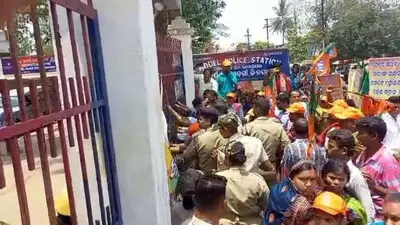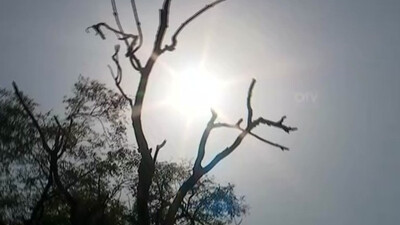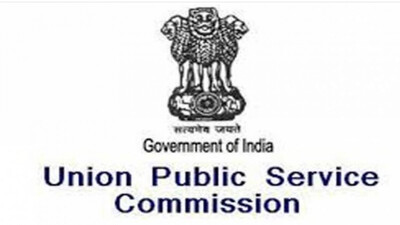Recommended Stories
The ruling by a majority 2:1 judgement of a three-judge bench, headed by Chief Justice S H Kapadia is a short in the arm for the Centre as the 2009 legislation was its flagship programme aimed at providing free and compulsory education to all children in the age group of 6 to 14 years despite stiff resistance from unaided private institutions.
While Justice Kapadia and Justice Swatanter Kumar gave the majority verdict, Justice K S Radhakrishnan, who gave a dissenting judgement on some aspects of the law, asserted that the provision for 25 percent compulsory free seats would not apply either to unaided private institutions or to unaided minority schools.
Significantly, the majority view also asked the government to weed out "under performing and non-performing " aided schools to ensure that only those schools who meet the standards required under the 2009 Act are allowed to continue. The apex court rejected the arguments of the private schools that imposition of such conditions violated their Fundamental Right guaranteed under Article 19(1)(g) (carry out any profession) as being "unreasonable".
"A child who is denied right to access education is not only deprived of his right to live with dignity, he is also deprived of his right to freedom of speech and expression enshrined in Article 19(1)(a). The 2009 Act seeks to remove all those barriers including financial and psychological barriers which a child belonging to the weaker section and disadvantaged group has to face while seeking admission. The 2009 Act has been enacted to give effect to Article 21A," said Justice Kapadia, writing the majority judgement.
The apex court said Article 15(5) is an enabling provision and it is for the respective states either to enact a law or issue an executive instruction providing for the reservation except in the case of minority educational institutions referred to in Article 30(1) (minority institutions). "The intention of the Parliament is that the minority educational institution referred to in Article 30(1) is a separate category of institutions, which needs protection of Article 30(1) and viewed in that light we are of the view that unaided minority school(s) needs special protection under Article 30(1).
"Article 30(1) is not conditional as Article 19(1)(g). In a sense, it is absolute. Reservation of 25 percent in such unaided minority schools (would) result in changing the character of the schools. Thus, the 2009 Act including Section 12(1)(c) violates the right conferred on such unaided minority schools under Article 30(1)," the apex court said. The apex court said the Act has been enacted keeping in mind the crucial role of universal elementary education for strengthening the social fabric of democracy through provision of equal opportunities to all.
"Since the Article 19(1)(g) right is not an absolute right as Article 30(1), the 2009 Act cannot be termed as unreasonable. To put an obligation on the unaided non-minority school to admit 25 percent children in class I under Section 12(1)(c) cannot be termed as an unreasonable restriction. Such a law cannot be said to transgress any constitutional limitation. The object of the 2009 Act is to remove the barriers faced by a child who seeks admission to class I and not to restrict the freedom under Article 19(1)(g)," the court said.
According to the government, there are 1. 8 lakh private unaided schools in the country and 1.2 lakh private aided ones, besides the 8 lakh government schools. Writing the dissenting judgement Justice Radhakrishnan said Government cannot abdicate its responsibility and compel "non-state actors" to discharge its duties. "Non-state actors exercising the state functions like establishing and running private educational institutions are also expected to respect and protect the rights of the child, but they are, not expected to surrender their constitutionally guaranteed rights.
"The state, however, cannot free itself from obligations under Article 21A by offloading or outsourcing its obligation to private state actors like unaided private educational institutions or to coerce them to act on the state`s dictate," the judge said. Justice Radhakrishnan said Article 21A has used the expression "such manner" which means the manner in which the state has to discharge its constitutional obligation and not "offloading those obligations on unaided educational institutions."
The judge said the Act cannot go to contrary to the Constitution bench ruling in the TMA Pai and Inamadar case which prohibited unreasonable restrictions on private unaided institutions. "To compel the unaided non minority and minority private educational institutions, to admit 25 percent of the students on the fee structure determined by the state, is nothing but an invasion as well as appropriation of the rights guaranteed to them under Article 19(1)(g) and Article 30(1) of the Constitution.
"Legislature cannot under the guise of interest of general public arbitrarily cast burden or responsibility on private citizens running a private school, totally unaided", he said. Justice Radhakrishnan said "Section 12(1)(c) was enacted not only to offload or outsource the constitutional obligation of the state to the private unaided educational institutions, but also to burden them with duties which they do not constitutionally owe to children included in Section 2(d) or (e) of the Act or to their parents."
The judge said private unaided educational institutions are established with lot of capital investment, may be with loan and borrowings to maintain high standard of education, well-qualified and experienced teachers have to be appointed, at times with hefty salary. "Section 12(1)(c), in my view, would amount to appropriation of one`s labour and makes an inroad into the autonomy of the institution. Unaided educational institutions, over a period of time, might have established their own reputation and goodwill, a quantifiable asset.
"Nobody can be allowed to rob that without their permission, not even the state. Section 12(1)(c) is not a restriction which falls under Article 19(6) but casts a burden on private unaided educational institutions to admit and teach children at the state dictate, on a fee structure determined by the state which, in my view, would abridge and destroy the freedom guaranteed to them under Article 19(1)(g) of the Constitution," Justice Radhakrishnan added.












